In 1975, the Golden State Warriors brought an NBA championship to Northern California, what would be the first of many, as it turned out. However, that wasn't the first team to bring a title to the Bay Area. Indeed, six years earlier, a team that proudly called the East Bay home won the first pro basketball championship by a team from the West Coast. That team was called the Oakland Oaks.
They were part of an upstart league called the American Basketball Association (ABA), founded in 1967 to compete with the NBA. The new league’s intentions were debated from the start. Some said it was merely an attempt by savvy businessmen to get into the NBA cheaply by eventually forcing a merger. Others said it was a way to bring basketball to new markets. And some said the established league had grown stale and boring and needed shaking up with exciting new players and modernized rules. The ABA wound up doing all three.
The Oakland Oaks were established on February 2, 1967, by S. Kenneth Davidson. He, in turn, invited entertainer and avid basketball fan Pat Boone to join the ownership group.” I was intrigued,” Boone told the Good Seats Still Available Podcast* in 2017. “I wasn't going to invest money in it. I knew it was very speculative.” Instead, Boone received ten percent of the club in exchange for being listed as the team’s president, something that would seemingly add instant credibility to the new team, as well as the league.
In retrospect, it might look like a risky proposition, but the area was growing. The East Bay already had a pro football team in the American Football League, which had just announced a merger for the 1970 season with the National Football League. The National Hockey League welcomed the former minor league California Seals, their home ice in Oakland, for the 1967-68 season. The Athletics were moving to town for the 1968 baseball season. Surely a basketball team would be welcome as well. Suddenly, Oakland has teams in all four major sports leagues.
The Oaks put together a solid roster. Future superstar Warren Jabali was joined by future NBA coaches Larry Brown and Doug Moe. They also acquired NBA great, and Bay Area hero, Rick Barry, whose contract with the San Francisco Warriors had just ended.
“The NBA and the Warriors wouldn’t let Rick Barry play for us,” Boone explained. “They got an injunction against him playing for us because he was signed to the reserve clause.” That meant Barry either played for the Warriors or no one for the 1967-68 season.
“Our ABA lawyers, who very expensive,” Boone continued, “and should have known what they were talking about, decided the reserve clause was restraint of trade preventing a player like Rick from playing where he wanted to.”
The case was heard in San Francisco. “Guess what? The local judge sided with the Warriors,” Boone laughed. Barry decided to sit out. He became part of the Oaks organization in that inaugural season, providing color commentary for the radio broadcasts of Oaks games.
The Oaks played their first regular-season game on October 13, 1967. A crowd of 4,848 filed into the Oakland-Alameda Coliseum Arena to watch the Oaks down the Anaheim Amigos 134-129. Across the bay, the Warriors topped the expansion Seattle SuperSonics 144-116. At the end of that game, the San Francisco fans chanted, “where’s Rick?”
Despite a winning start, the Oaks went on to finish dead last with a record of 22-56. In 1968, though, Barry was able to suit up, and he helped propel the team from worst to first. The Oaks turned in a record of 60-18. The next best record belonged to their division rivals, the New Orleans Buccaneers, who finished with a mark of 46-32.
The Oaks had their hands full in the division semi-finals, beating the Denver Rockets four games to three. They swept New Orleans in the division finals before dispatching the Indiana Pacers in five games to capture the title.
Unfortunately, the Oaks winning ways, even with superstar Barry in the lineup, didn’t put butts in the seats. Across the bay, the Warriors, while not making it to the NBA finals, were still a playoff team and continued to pull in the area’s basketball fans.
Drowning in a sea of red ink, Davidson declared bankruptcy. That’s when Boone found out he was on the hook for over a million dollars owed to the team’s bank. Boone had never agreed to take any financial responsibility for the team, yet the bank insisted he owed them the money and was prepared to take swift action.
“Alex Spanos contacted me,” Boone said, “and asked, ‘how would you like to have a partner?' I’ll take over the team and give you twenty percent.” Boone declined and almost immediately regretted that decision. Spanos went on to buy the San Diego Chargers.
With the walls, and the bank, closing in, a white knight rode in from the east. Earl Foreman, who would later found the Major Indoor Soccer League, came to the rescue, bought the Oaks from Boone, and moved them to Washington, D.C. They were renamed the Caps before becoming the Virginia Squires in 1970. Two years later, the San Francisco Warriors became the Golden State Warriors and moved into the Oaks' old home in the East Bay.
The whole experience with the Oaks kept Boone from accepting offers to join the ownership group of the NBA’s Phoenix Suns and, later, the Dallas Mavericks. The franchise Boone helped establish found a small but loyal following in Virginia, however, the team folded just before the NBA/ABA merger in 1976.
*The Good Seats Available podcast is part of the Old School Shirts affiliate program.


